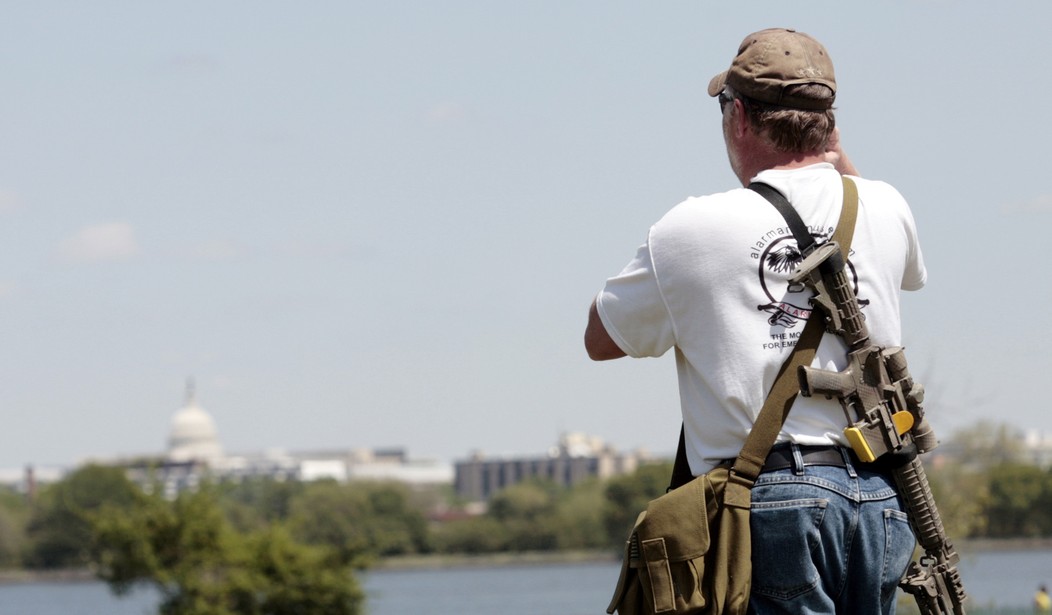Disarming the law-abiding ensures loss of innocent life and tyranny. It emboldens those intent on murder and mayhem because it removes primary obstacles from effectuation of their evil intents. That logic would seem unassailable, and yet the radical left views guns, not assailants, as culprits and demands gun restriction and confiscation in violation of the Second Amendment.
Robert Card’s murder of 18 people in Lewiston, Maine, is the latest of 36 mass murders that have occurred in the United States this year Elsewhere in the world when genocide occurs, the Biden Administration and Democrats in Congress spend tax dollars to arm militia and endorse use of force, but in our own country when armed attacks occur on the innocent, those same Democrats call for disarmament of the law-abiding.
Our Founders deplored laws that compelled disarmament. They viewed them as antithetical to the rights of individuals. They were aware of instances in which the Crown disarmed Protestants prior to official acts of censorship and persecution. After the Glorious Revolution of 1688 (whereby the Crown consented to limits on monarchical power in favor of Parliament), the Parliament adopted a Bill of Rights (1689). Parliament there codified its own rights and certain rights of the British people and compelled the Crown to seek parliamentary approval before undertaking certain consequential measures. Under Article VII of the British Bill of Rights, “Protestants may have arms for their defence suitable to their conditions and as allowed by law.”
That limited conception of a right to bear arms was broadened in the American constitution, giving rise to two rights applicable to all citizens, one a right to keep and bear arms and the other a right to join private militia in defense of “a free state,” meaning a republican form of government. The language of the Second Amendment reflects both intentions: “A well-regulated Militia, being necessary to the security of a free State, the right of the people to keep and bear Arms, shall not be infringed.”
Recommended
Like the First Amendment, the Second Amendment denies government power to abridge individual rights. While in England under an unwritten constitution, seditious libel prosecution and disarmament are powers retained by Parliament, in the United States under a written Constitution and Bill of Rights, those powers are expressly denied the government. That stems from a difference in foundational principles. In England, rights were construed to be the province of Parliament, in America rights were understood to be the province of the individual, pre-political and from God, not government. Consequently, the American Bill of Rights stands as an affirmation of the principle generally accepted by the Founders: that the rights of the people are unalienable by government.
That break with English precedent is reflected in the Founders’ writings and arguments before ratification and in the arguments for the Bill of Rights in the First Congress. For example, in his Commonplace Book (1774-1776), Thomas Jefferson quoted from the Italian philosopher Cesare Beccaria in his book Crimes and Punishments (1764) that laws denying individuals the right to keep and bear arms favored criminals and increased violent crime: Laws against the “carrying of arms . . . disarm only those who are neither inclined nor determined to commit crime . . .” quoted Jefferson. The Founders considered Beccaria authoritative on the point.
In George Mason’s language for the Virginia Bill of Rights from which Madison drew in recommending a federal Bill of Rights, Mason recites the nature of the right to form a militia: “That a well-regulated military composed of the body of the people, trained to arms, is the proper, natural and safe defense of a free state; that standing armies, in time of peace should be avoided as dangerous to liberty; and that, in all cases, the military should be under strict subordination to, and governed by, civil power.”
In short, the Second Amendment confirms no governmental power over two reserved and unalienable rights of the people: first, the right of the people to form a private militia in defense of a free state, and second, the right of the people to keep and bear arms.
The Founders rejected the British idea that the peoples’ representatives create rights. They understood rights to be from God, among them Second Amendment rights. They abhorred standing armies in peace time; they wanted at all times a citizen militia to stand at the ready to defend republican forms of government. They abhorred official disarmament. They meant for the individual right to keep and bear arms to be protected from government.
Consistent with this framework, gun control is unconstitutional. Those who commit crimes are answerable under the law for their acts (guns being chosen tools, not culprits). To resolve America’s violence problem requires not disarmament, but the opposite: defense of individual use of weapons to protect life, liberty, and property, and allowance of a citizen-formed militias to protect republican forms of government. In other words, a well-armed American public is the best deterrent and defense against the lawless who wield guns and against those who seek overthrow of republican forms of government. Disarmament remains, as Beccaria understood in the 17th Century, the means by which the lawless gain control over the law-abiding and impose tyranny in place of liberty.

























Join the conversation as a VIP Member